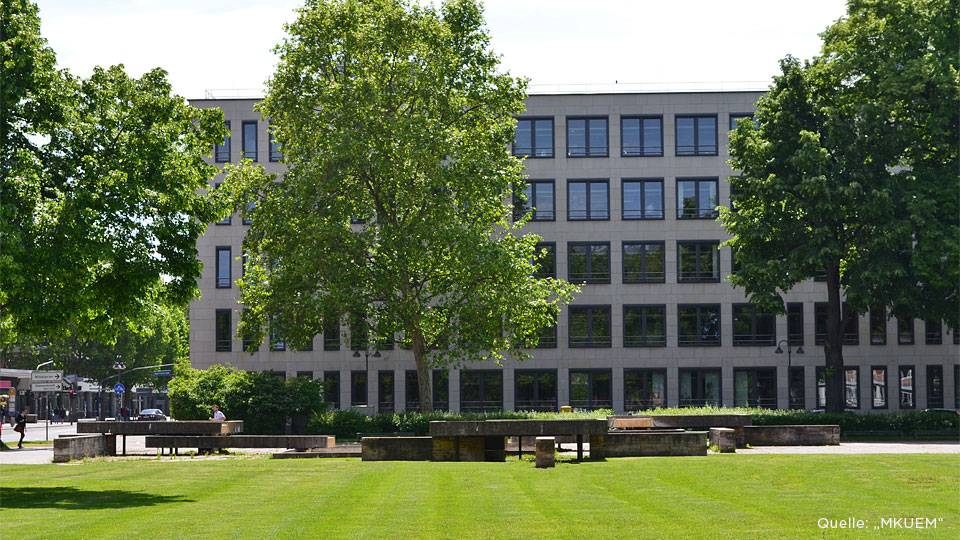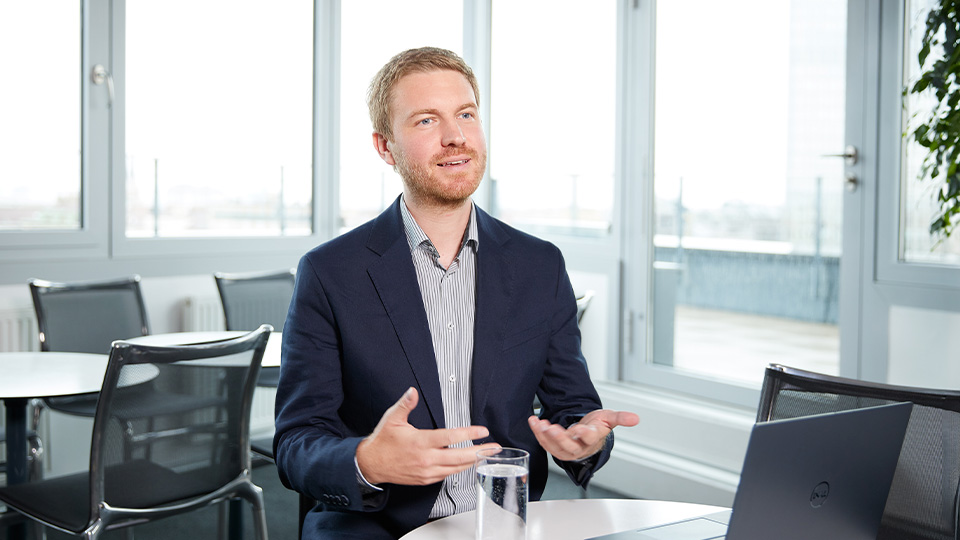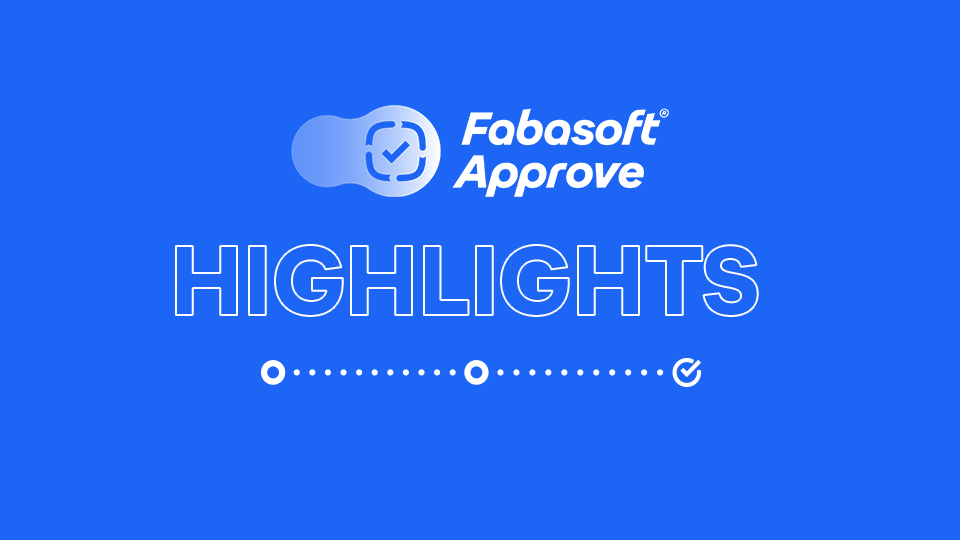Mr. Meier, the Ministry of Climate Protection, Environment, Energy and Mobility (MKUEM) migrated to the “E-Akte” of the state of Rhineland-Palatinate about a year ago. Your ministry was a big proponent of using the Fabasoft eGov-Suite at the state level. How did this happen?
Daniel Meier: We have been using Fabasoft products for 20 years. When I started my training at MKUEM in 2003, the ministry was just in the implementation phase of the “E-Akte” based on the Fabasoft eGov-Suite. The goal was to increase efficiency through paperless, digital case processing. I still remember it well - it was a real paradigm shift for our ministry. At that time, Fabasoft scored with its experience in digitizing processes, because there was no pioneer in the entire state of Rhineland-Palatinate that the ministry could have looked to for guidance.
After the introduction, digital file management was indispensable. However, this was also a process that had to grow. Employees had to be involved, and organizational regulations and structures had to be developed and defined in project groups. Regular communication with the staff, the organization and with Fabasoft was one of the essential building blocks for the success of the project. This even went so far that our staff wanted to take the “E-Akte” with them when they changed ministries. In this way, other ministries gradually got to know the “E-Akte”. When Fabasoft was finally awarded the contract at the state level, we were very pleased. But in the end, we had no influence on the decision of the state. Fabasoft was simply convincing.
What are the advantages of using the Fabasoft eGov-Suite in your ministry?
Daniel Meier: The Fabasoft eGov-Suite impresses in many ways. Documents can be easily gathered and filed, and they can be quickly merged, edited and stored in an audit-proof way. In addition, staff have already saved templates for outgoing letters with automatically inserted names and business symbols. All this, plus digital collaboration in Teamrooms, save our employees a considerable amount of time and makes their work much easier.
We map processes digitally and can see inefficient steps at a glance. The ministry simplifies and optimizes its processes and quickly establishes standards. So, processes are transparent and fully traceable.
Another advantage is the reduced search effort - which is very time-consuming with paper, also sometimes digitally. With Mindbreeze's full text search, we can easily find documents and information. The authorisation concept can be easily adapted to different circumstances of the company and thus ensures data protection.
Another important criterion is the mobile availability. Especially during the coronavirus pandemic, our employees benefited greatly from the location-independent access to files and documents.
What did the migration from the previous eGov-Suite version of MKUEM to the customized solution for the state of Rhineland-Palatinate mean for your ministry?
Daniel Meier: We were very happy about the commissioning of Fabasoft. But I have to be honest, some of our employees were concerned about switching to the state version of the Fabasoft eGov-Suite. Because even though it is the same software, certain adjustments are now tailored to the entire Rhineland-Palatinate state administration. We had to readjust individual processes and parts of our authorization concept and Fabasoft provided us with a lot of support. I think that's another reason why we're so satisfied - Fabasoft told us honestly which processes and settings made sense and which didn't.
There were also significant changes to the user interface, for example a rearrangement of elements (widgets).
So, it became very clear that we would have to take our staff with us again when we switched to the national version. For this reason, we held information events at which we presented the new features and formed a project group in advance to support us in testing. Our staff can access learning and training materials at any time on an internal platform. In addition, my colleague offered individual training sessions. Fortunately, the initial concerns of the employees quickly disappeared.
What exactly happened after Fabasoft was awarded the contract for the entire country?
Daniel Meier: First of all, we defined the migration and implementation concept, which included transferring five terabytes of data to the new country version. In addition to technical challenges, there were also incalculable problems such as the Ahrtal flood disaster in July 2021, the coronavirus pandemic or unforeseeable staff absences. Fabasoft was always there to advise us.
Although our ministry helped to develop the adjustments to the state version in interdepartmental working groups, we waited until all other state departments (ministries, state chancellery and state parliament) had implemented the new version before migrating to the RLP state version. The advantage of this was to migrate to a system that was already more mature. A disadvantage, however, was that flexible adjustments were no longer as easy for us, since there was already a state standard. During this time, we updated the migration and implementation concept several times, because certain things may work in theory, but do not prove themselves in practice.
The migration has been completed for a year now, but the digital transformation of the administration continues. Which projects are currently underway, and which do you have planned for the future?
Daniel Meier: We are currently digitizing all processes, including those at management level. We have already completed two of them. Our climate protection minister and our state secretaries work predominantly with the mobile app for these processes. Using the app is completely new for us, because in the old eGov-Suite version of the MKUEM, our top house managers used the desktop version if necessary.
By the end of 2023, we want to be working across clients, which means that staff from the different ministries will communicate directly with each other in the “E-Akte”. In addition, all subordinate authorities will to migrate to the state version.
In addition, departments will connect their specialized administrative procedures. This will finally make a bidirectional exchange of information possible between MKUEM and external parties such as citizens, companies and organizations – all in accordance with the Online Access Act (OZG). Two pilot projects are currently underway. For example, when submitting energy subsidies, the responsible agencies - several ministries are involved in this - will receive the information of the subsidy application completely digitally and, as far as possible, automatically.
The Ministry for Climate Protection, Environment, Energy and Mobility (MKUEM) is one of the nine ministries of the Rhineland-Palatinate state government. The MKUEM introduced the Fabasoft eGov Suite back in 2003 and was a pioneer of digital administrative work in Germany at the time. In 2017, the federal state of Rhineland-Palatinate awarded Fabasoft the contract to implement an “E-Akte” system. In 2022, MKUEM finally migrated its data to the Fabasoft eGov-Suite Rhineland-Palatinate.
Daniel Meier is IT specialist at the Ministry of Climate Protection, Environment, Energy and Mobility. In 2003, Mr. Meier started his training at MKUEM, exactly during the “E-Akte” implementation at the ministry. In 2006, Mr. Meier moved to the IT department, where he personally came into contact with the Fabasoft eGov-Suite shortly thereafter. In 2021, Mr. Meier finally took over the IT area of the “E-Akte” in the ministry and was responsible for the migration to the Rhineland-Palatinate state version.



